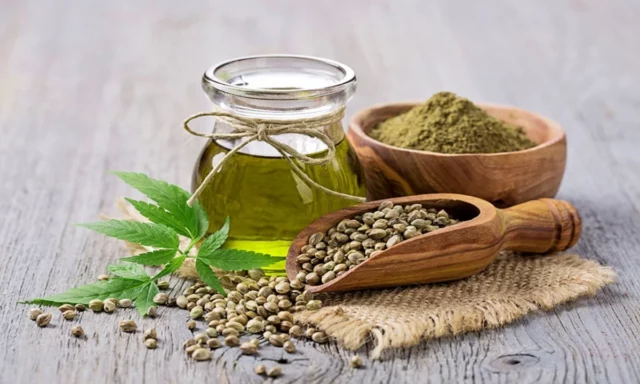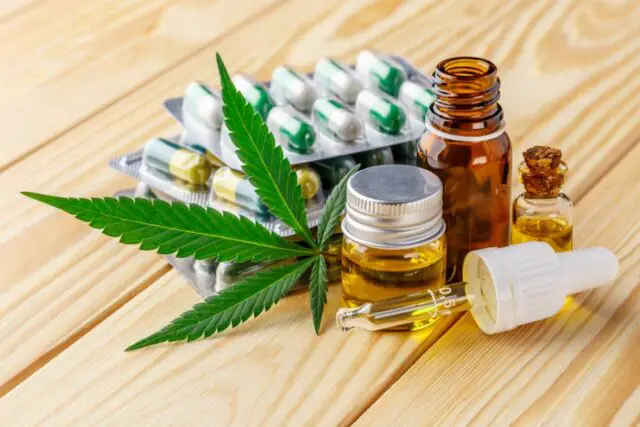On March 1st, 2022, the Legislative Assembly of Costa Rica approved in a second debate the draft “Cannabis Law for medicinal and therapeutic use and hemp for food and industrial use No. 10,113”. Thus Costa Rica became one of the 56 countries and territories to legalize the use of this plant known for its psychoactive and medicinal effects.
Nine months after the approval of this law, a vast majority of the Costa Rican population approves the legalization of the medicinal (76.5%) and industrial (70.4%) use of cannabis, according to data from the 2022 News Survey of the School of Statistics of the UCR, which was presented on December 14th.
The survey was applied by telephone to a probabilistic sample of 1,873 people of legal age that covers 97% of the population aged 18 and over in the country. It was prepared by the students of the Sampling Survey Design course at the School of Statistics under the supervision of Professor Dra. Fernanda Alvarado Leitón.
“The data indicates that there is openness in the country towards the legalization of cannabis for industrial and medicinal uses; but, there is still resistance to the legalization of recreational marijuana and the cultivation of cannabis in homes” revealed Survey News 2022, School of Statistics.
The data from this survey reverses the trend detected in 2014 when, of the people surveyed, 77.2% expressed disagreement with the legalization of marijuana, although by then more than half of the population said they were willing to use it as medicine.
Isaura Gutiérrez Vargas, a Statistics student, detailed the main results of this survey that revealed the current opinion of the Costa Rican population regarding the different uses of cannabis, both hemp (industrial use, low THC content) and marijuana (use medicinal and recreational, high THC levels).
Optimism in the population
The “Law on cannabis for medicinal and therapeutic use and on hemp for food and industrial use” was approved in Costa Rica as an alternative for economic reactivation after the COVID-19 pandemic that would provide opportunities for various sectors.
“There seems to be a consensus that the legalization of cannabis will bring economic benefits to the country,” said the students when analyzing the results on the perception of the consequences of the legalization of cannabis. The data indicates that 63.1% agreed that legalization will increase tax collection, while 60.6% said that it would generate a new source of jobs.
The survey mentions some industrial uses of cannabis such as the manufacture of cosmetics, clothing and construction materials. In this regard, Dr. Monika Hidalgo Rivera, an expert in drug dependence at the UCR School of Pharmacy, commented that, in the field of cosmetology, for example, it is an option for small and medium-sized companies that could develop various products for skin care, taking advantage of the antioxidant properties of cannabis.
Hidalgo points out that legalization opens up new business opportunities for the pharmaceutical industry and health professionals. For example, in the field of healthcare pharmacy, which includes education for the population, guidance with interactions and consultations in general. Pharmacists are also empowered to make custom-made magisterial preparations, according to each patient’s diagnosis.
In the field of industrial pharmacy, opportunities are opening up for research, innovation and development, process validation and accredited qualitative and quantitative analysis laboratories. They could also work on regulatory issues such as product registration and pharmacovigilance.

Hemp has been used for thousands of years for industrial purposes in construction, as a source…
Hemp has been used for thousands of years for industrial purposes in construction, as a source of fiber due to its long stem and small flower, also in food as a source of fatty acids omega 3 and 6, in the textile and paper industry. According to the regulatory framework of each country, THC concentrations can range between 0.3% and 1% maximum.
Recreational use with little support
The majority of the population (62.1%) recognizes that marijuana is the most widely consumed illegal drug in the country. The survey found less support for legalizing the recreational use of cannabis (35.4%) and its cultivation in limited quantities at homes (34.0%).
These uses were also outside the Law, due to the veto of the Executive Power. The veto eliminated articles 5, 25 and 26 that referred to the possibility of domestic cultivation for self-consumption for medical and therapeutic purposes, while recreational use was not contemplated in this initiative.
According to the survey, men, younger people, those with a university education and those who do not practice any religion are the ones who show the greatest openness to the legalization of cannabis for most uses. People between the ages of 18 and 29 are the ones who most support the legalization of medicinal use (85.9%), recreational use (56.0%) and home cultivation (51.1%).
In this regard, the expert points out that if recreational use is approved, it should rather be defined as “adult use” in such a way that consumption is authorized only for people over 21 years of age, since consumption by minors generates consequences at the level of development and greater possibilities of generating dependency.
The survey also inquired about the perception of people regarding possible consequences of the legalization of cannabis. “56.8% of people believed that the legalization of cannabis will increase the number of marijuana users, while less than half, 37.9%, stated that it will increase drug trafficking.”
Precautions for medicinal use
Scientific evidence, so far, has shown the effectiveness of cannabis-based medicines in four cases: for the treatment of chronic neuropathic pain, for the treatment of nausea and vomiting associated with chemotherapy, spasticity (tight muscles) in multiple sclerosis and refractory epilepsy (Lennox-Gastaut syndrome, Dravet and tuberous sclerosis).
Dr. Hidalgo warns that for other medicinal uses such as the treatment of Parkinson’s Disease (non-motor symptoms), insomnia or Social Anxiety Disorder there is moderate evidence on the effectiveness of cannabis.
“Regarding medicinal use, it should be clarified that cannabis is not the panacea or the miracle drug that will save us from all the problems we have, the cannabinoids that are active components of cannabis are not for everyone,” warned the expert.
Since 2021 in Costa Rica, food and cosmetic supplements with registered cannabinoids have been marketed. However, Hidalgo points out that these products should not be assigned therapeutic qualities. In addition, it warns that there are those who offer cannabis in illegal markets, or those who misinform and provide unrealistic expectations to patients and relatives, conferring miraculous and healing properties on it.

Learn about the medicinal use of cannabis
Remember that a complete medical evaluation and medical history is necessary to decide who is really a candidate for cannabinoid treatments. Consult with the health professional about your concerns about the subject.
An X-ray of the national reality
On this occasion, the opinion of people on the use of cannabis was studied because at the beginning of this year the “Law on cannabis for medicinal and therapeutic use and on hemp for food and industrial use” was approved in Costa Rica and, currently, the approval of the recreational consumption of marijuana is sought from the Executive Power.
Because it seems that we are heading towards a broader legalization, the opinion that people have about the legalization of cannabis for its use and commercialization in the country was investigated in this survey for generating the necessary debate among all the country`s population.

